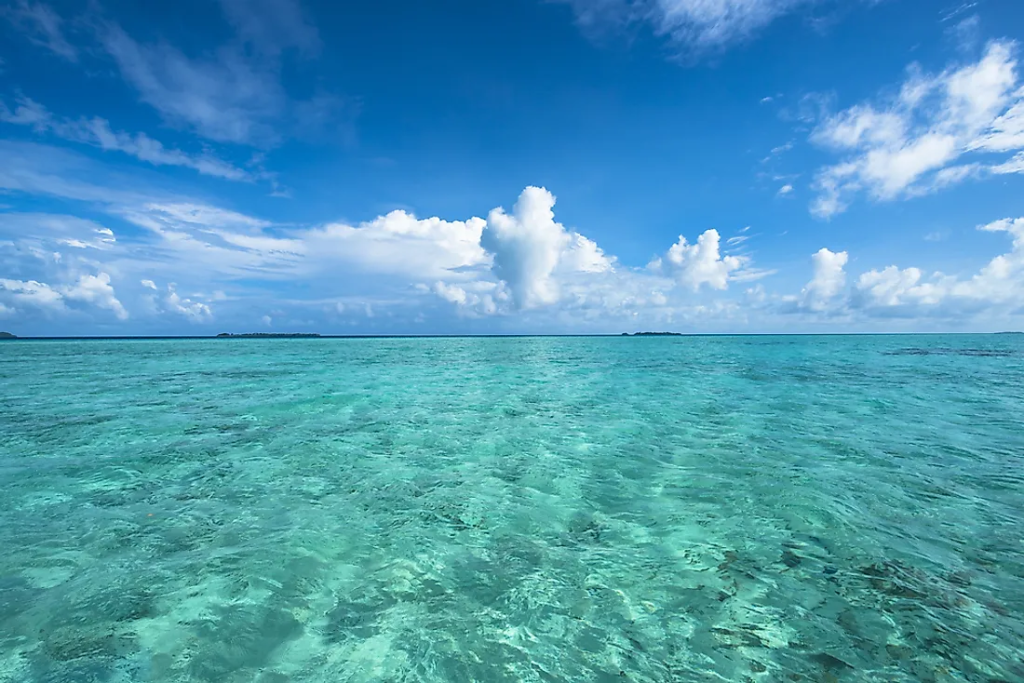|
Listen to article
Getting your Trinity Audio player ready...
|

The United Nations recently observed World Ocean Day emphasising the role oceans play in our life and proclaimed 2021-2030 as the Decade of Ocean Science for Sustainable Development.
Many countries have been celebrating 8 June as the “World Oceans Day”. The theme for World Oceans Day 2022 was Revitalization: Collective Action for the Ocean. The concept of World Oceans Day was first proposed in 1992 at the Earth Summit in Rio de Janeiro to celebrate our world’s shared treasure – the ocean and personal connection with the sea. The objective was to raise awareness about the crucial role the ocean plays in our lives and the important ways people can help protect it.
The idea behind all this is to reverse the cycle of decline in ocean health and evolve a common framework and collective action all over the world to improve the sustainable development of the oceans.
“What we do or do not achieve during this Decade will have far-reaching consequences for our planet’s ‘blue lung’” says Audrey Azoulay, Director-General of UNESCO.
Let’s get our facts clear – we cannot even imagine living without the oceans, the lungs of our planet and a major source of food and medicine. The oceans:
- Are home to most of the earth’s biodiversity
- Hold 97% of our planet’s water.
- Cover over 70% of planet earth and are a source of life and sustenance of almost all organisms living on it.
- Produce almost 50% of the planet’s oxygen
- Absorb about 30% of carbon dioxide produced by humans, buffering the impacts of global warming.
- Produce close to 100 million tons of food each year
- Are the main source of protein for more than a billion people around the world
- Controls temperature and weather by absorbing almost half the heat from the sun.
Above all, an estimated 40 million people are projected to be employed in ocean-based industries by 2030.
But in spite of all these benefits, the oceans need our support. Already almost 90% of the big fish populations are getting depleted, and 50% of coral reefs are being destroyed, and if we don’t act fast most aquatic life will vanish and the oceans will be ruined beyond repair.
Hence it is about time we realised that life on Earth would be severely challenged, unpleasant and perhaps impossible without the oceans.
According to NASA, over one-third of the total human population, nearly 2.4 billion people, live within 100 km of an oceanic coast. This human population is growing, and because more and more people are living close to the ocean, the impact, particularly on the coastal zone, is increasing as well. Increasing population and their needs for housing, shelter, and food lead to depletion of oceanic fisheries, deterioration of water quality, death of coral reefs, and beach erosion.
Given the rate at which the oceans are being exploited, a stage might come when the oceans will contain more plastic than fish by 2050 profoundly reducing the ocean’s ability to produce seafood, resist diseases, filter pollutants and rebound from stresses, such as climate change and overfishing. At this rate experts say that 90% of our coral reefs may be dead, waves of mass marine extinction may be unleashed, and our seas may be left overheated, acidified and lacking oxygen by 2050.
The tragedy is that this is not something that is predicted to happen, but happening right now.
Oceans are home to many living organisms from blue-green algae or cyanobacteria to giant blue whales. It’s virtually impossible to conceive of life without water.
Oceans absorb the harsh rays from the sun and regulate temperatures around the Earth. Warm tropical currents flow from the north and south and bring the cold water back to the equator. This ensures that no place is too hot or cold for life to survive.
The sun would turn places close to the equator into a blazing furnace. The difference in temperature between day and night would create high/ low-pressure systems and produce wind, but the average temperature on Earth would be so high that it would be virtually impossible for even the toughest desert animals to live on earth.
Soon most of the plants would be gone. The oxygen in the atmosphere would deplete day by day and soon a stage would come when the earth would roast and humans may find it difficult to breathe or tolerate the extreme surface temperatures.
The conclusion drawn is that we live in a world where everything is interconnected. Oceans are the life support system of all living beings and life on Earth cannot exist without the oceans.
“Without water, our planet would be one of the billions of lifeless rocks floating endlessly in the vastness of the inky-black void”— says Fabien Cousteau, an aquanaut, ocean conservationist, and documentary filmmaker.
According to Jacques Yves Cousteau, the famous Oceanographer who was Fabien’s grandfather, “The real cure for our environmental problems is to understand that our job is to salvage Mother Nature. We are facing a formidable enemy in this field. It is the hunters… and to convince them to leave their guns on the wall is going to be very difficult.”






Add comment